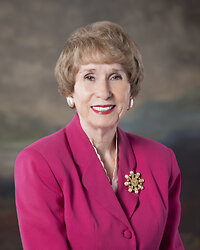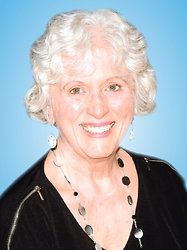We thought the party was a huge success. People went out of their way to give everyone a great time. While driving home, we asked our friend how she liked it. She said, "Fine." How frustrating is that answer?! Besides, what does it mean? From her response we do not know if she liked it or tolerated it. It is like replying, "It was okay." Often it is expressed with a tone of voice that is anything but enthusiastic. "Fine" and "It was okay" are too abstract, vague and nondescript.

The passive ones of us may use this abstract language because we do not like to be pinned down. One of the reasons we do not like being pinned down or take a stand is our fear that we might be wrong or upset the other person. This can drive our partners crazy.
Look how we use these nondescript words. When we think we are losing an argument and don't know what else to say, we will angrily bark out, "Fine!" We know it doesn't mean, "I'm okay with this." Actually, it means, "I don't want to talk about it so stop talking."
When our child nags us to do something, we may say "Fine" just to stop the nagging. The child knows he has won but may feel conflicted because we gave him a double message. Translated it means, "Go ahead and do it but if you do I will be angry with you." We may give the same confusing double message to our partners as well.
We trust body language more than verbal. For instance, our partner's body language is screaming, "I'm angry with you!!!" There is the cold and icy affect. Doors are shut harshly and there is hostile eye glare. We ask our partner, "Is there something wrong?" We may get the sullen response, "I'm fine." We know things the body language is the true message - things are not fine!
When I encounter someone who uses the word "fine" about some activity and I want to know how well he liked it, I ask, "From one to ten with ten being the higher, where is fine on that scale?" This forces him to be more specific.
Karen and I have found another way of using this scale. When we cannot decide on attending some event such as a movie or restaurant, Karen will ask me, "From one to ten with ten being the higher, how much do you want to go to that movie?" She will say where she is on the scale. If both of us have low numbers, we decide not to go. If her number on the scale is higher and mine is six or less, then we will go to her selection. It works well for us.
Dr. William E. Austin is a licensed psychotherapist and holds a Doctor of Divinity degree. He is a therapist with Tidewater Pastoral Counseling Services . He is well known for his warmth and sense of humor. His book, Creating Our Safe Place - Articles on Healthy Relationships, can be purchased through www.amazon.com.
Tidewater Pastoral Counseling: 623-2700
CURRENT COLUMNS
On The Front Porch With You 
Memories of Homeby Rob LauerChildren First 
Dandelion Timeby Becky AdamsPublisher’s Point 
Time To Moveby Jean Loxley-BarnardRelationships 
When Your Security Blanket is in the Dryerby Dr. Bill Austin

